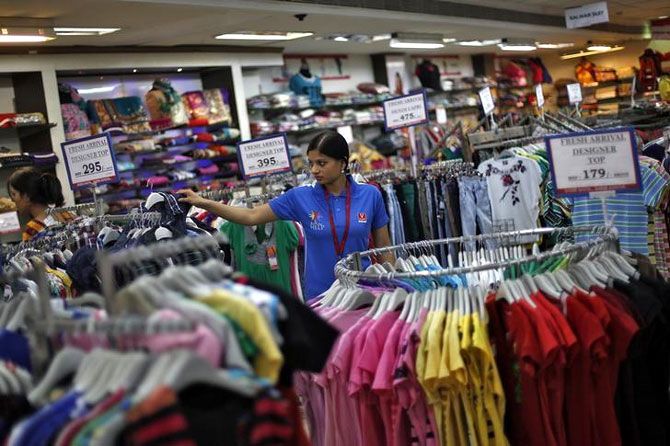Future Group said customer acquisition costs, fulfilment costs and other expenses in e-commerce add up to 50 per cent of overall business costs, making it unviable

Kishore Biyani’s Future Group has decided to close the chain’s ambitious online retail venture Big Bazaar Direct, finding the business unviable.
Set up in 2013, Big Bazaar Direct is an assisted e-commerce venture of the Future Group, with 1,000 franchisees. It had plans to enroll 50,000.
The group wants to focus on its core business of physical retailing, where it plans to add 3.5 million sq ft of space, the highest-ever addition by the group in a single year.
“I have attempted e-commerce four times in my life. We opened and shut Future Bazaar (the group’s first e-commerce venture). We will close Big Bazaar Direct within a week,” said Biyani, at an event organised by realty consultants JLL and UBM India over the weekend.
In Big Bazaar Direct, franchisees sell Big Bazaar products to customers with the help of a tab, without holding any stock.
They need to pay a deposit of Rs 300,000 to the group. Early this year, Big Bazaar Direct tied up with payment solutions company, Oxigen, to expand its distribution.
“We are trying to figure out a viable online model. With the acquisition of FabFurnish, we are learning what not to do in e-commerce,” Biyani said.
Early this year, the group bought home products site FabFurnish. Biyani said the customer acquisition costs, fulfilment costs and other expenses in e-commerce add up to 50 per cent of overall business costs, making it unviable.
He added that for a single customer acquired in most of the transactions in e-commerce, Facebook and Google get Rs 800-1,400. He, however, did not explain how they make money.
Taking a dig at e-commerce ventures, Biyani said their business models were not sustainable. “We are happy with old-fashioned retail business. There is profit in it. Our business model has arrived. Theirs is yet to arrive,” he said.
That said, the Future Group is increasingly getting entrenched in the online play, through tie-ups with prominent players such as Paytm and Snapdeal.
Earlier, it had partnered with Amazon. Recently, the group said its hypermarket chain, Big Bazaar, tied up with online marketplace Snapdeal for its flagship Big Bazaar’s five-day “Maha Bachat” sale.
Future Group recently tied up with Paytm, on which Big Bazaar became an anchor store. This allows Paytm users to make online purchases at Big Bazaar.
“We are not against e-commerce firms. We are only against heavy subsidising of products to gain market share. It is a great medium to reach a new set of customers and new geographies,” Rajan Malhotra, president, retail strategy & convergence, Future Group had told Business Standard recently.
“Many aspects of our omni-channel strategy are operational and some are yet to be operational,” Malhotra said, adding, “How we execute the plan is internal to the group.”
According to sources in the group, the omni-channel strategy started with its electronics chain, Ezone, where the offline and online operations are integrated. The group has created a separate team to implement the plan.
Photograph: Adnan Abidi/Reuters







 © 2025
© 2025